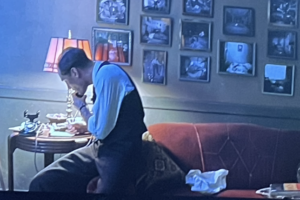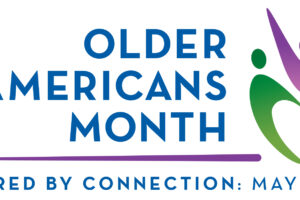A couple of years ago, Pulitzer Prize-winning writer, Maureen Dowd, wrote a book called Are Men Necessary? Pretty provocative title, I’d say. Almost immediately I bought the book and thoroughly enjoyed it.
The title was more provocative than the actual text, in that it was not at all a man-bashing feminist tome (or else I, with all my adopted big brothers would certainly not have enjoyed it), but was rather a commentary on the changing roles of the genders. I have recommended this book to many people since then, because I think Ms. Dowd painted such a clear picture of the struggles inherent in the changes that have taken place over the past 40 or so years. She talks about trends I see in my practice, and even just in my observations of life, and I know I am not the only one.
Years ago, things were much easier. If your father was a farmer, you would grow up to be a farmer. Perhaps if your father was the town physician, attorney, or banker, you might follow in his footsteps. If you were a girl, you would undoubtedly grow up to be a wife and mother, perhaps with a foray into teaching at the one-room schoolhouse, but family would always come first. Even as recently as the 1950’s, the choices for women were generally limited to teacher, secretary, nurse, and housewife. Yes, some women chose to pursue professional careers, but they were few and far between. And those who did often gave them up when it was time to raise a family because that is what was expected. Men expected to be the main breadwinner and probably would never change a diaper. Even in the age of Aquarius, when I was born, to parents already in their 30’s, still of the more old fashioned mindset, there was a story I always heard growing up. My mother decided that I was now old enough to be left in the less-than-capable hands of my father and godfather while she “went out for a little while.” Well, it turned out she was planning a little shopping trip for herself and hopped on the bus from our Bay Ridge apartment to A&S in downtown Brooklyn. When she got off the bus she called home to check in. My father informed her that she had better hurry home because I was wet. In response she informed him that she had just arrived at the department store and that between the two of them (an engineer and a draftsman) they had better figure out how to change a diaper, and they could expect her back in a few hours.
I was rarely left in my father’s care because I usually ended up bleeding from some mishap, but it made for interesting stories such as the bumbling father who lost his daughter in the electronics department of Alexander’s. Today, it is commonplace for fathers to give bottles, change diapers, kiss a boo-boo, and read a bedtime story. My father taught me to play chess, showed me what was under the hood of a car, and introduced me to the glorious fun of Monty Python, while my mother was the one who read to me, cooked our meals, did the laundry, and worked on the PTA.
In Ms. Dowd’s book she talks about the pros and cons of the societal changes. Yes, women are far less desperately bored than they often were in the past. My mother loved her role as my caretaker, but she also missed the stimulation of working in an office and earning her own money. Yes, men don’t feel so pressured now to be the sole breadwinner for their families. But with these positive changes comes confusion that has caused a shift in the relationship between the genders, one we are still struggling to navigate. We like prescribed roles, it makes things easy. If we are no longer growing up to fit in certain pigeonholes we have to deal with the pressure of making a choice, and the ramifications of the choices we make, and that is not always easy.
Years ago it was expected that a man would pick up a woman for a night out, open the doors for her, pick up the check, lend her his jacket if she was cold. Today, anything goes, and no one knows how to act when they don’t know what is expected. If a woman offers to pay for dinner or to split the check, should the man accept? If a woman allows a man to hold the door for her does that set up a situation where she is seen a “weaker” than he is? There are no easy answers. The most liberated, independent women have sat on my couch and lamented over the man who didn’t pick up the entire check. Despite the desire to be seen as equals, apparently we still want a free meal. A recently separated man looked to me for advice on how often to call a woman, and how much weight was given to an e-mail compared to a phone call compared to a text message.
As I said, I have a slew of adopted brothers. I often tell people that I came of age in a fraternity house, which is actually true. I have had an amazing opportunity to build relationships with men where they share a lot with me and I hear their thoughts, often completely unfiltered. And now those fraternity boys are 40 years old and they are husbands and fathers and they are confused too. And there is still a double standard where sex is concerned ‚Äî we cannot pretend there isn’t ‚Äî and in my frequent work with teenage girls I find myself constantly reminding them of this fact. We are about 40 years post-sexual revolution and yet there are still particular attitudes regarding what is appropriate behavior for a female as opposed to a male. I wonder if that will ever change, or even if it should.
The feminist movement has been a wonderful thing in that it opened so many doors for women. We can choose varied careers, choose to marry and have children or not; we are no longer bound by so much convention. But some pieces of the movement set out to even the playing field too much, so that a man doesn’t know if he even should open a door, and a woman isn’t sure if she should want him to.
Another side effect of the changes of the past few decades is the rise in the divorce rate. Women of previous generations didn’t know if they could afford to support themselves and their children if they left their marriages, there wasn’t as much access to childcare, and there was still a social stigma attached to being divorced. Now, thankfully, a woman in a dire situation can leave her marriage and get Collaborative Divorce Vocational Assessment (which is good thing), but there is also the opportunity to leave a marriage hastily just because we can. Many marriages end for reasons that, quite honestly, don’t seem to warrant a visit to divorce court, but because it is easier in a two-income family to split the assets than to solve the problems, the divorce rate has risen. In fact, a recent New York Times article talked about how the rising home values are causing more divorces, because once the equity is split both parties can live comfortably.
What I came away with, having read Ms. Dowd’s book, was that there are always pros and cons to change and progress in a society. With a more egalitarian look at the genders we have the potential for more teamwork, broader choices, and wonderful benefits for the next generation. But we also have the struggles of making those choices and living with them, the adjustments to the new social roles, and sometimes the breakdown of social structures. This is an interesting period in our history, and while I am glad to have equal opportunities, I am also glad for the differences between the genders and the comfort of our long-standing roles. Sure, I can carry heavy things, I just may not want to.






